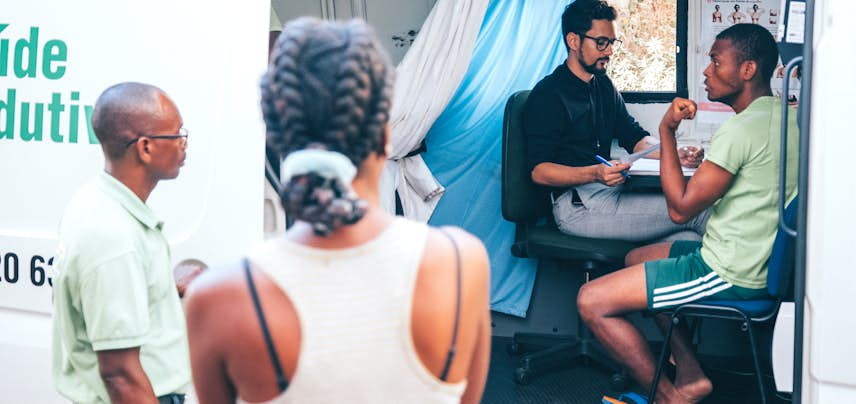United Nations (UN)
As in previous years, Luxembourg participated in meetings of the executive boards of UNDP, UNFPA, UNOPS, UN Women and UNICEF. In 2019, Luxembourg served on the executive board of UNICEF, in a year that marked the 30th anniversary of the International Convention on the Rights of the Child. At the annual session of the UNICEF executive board Luxembourg facilitated the decision on the annual report on humanitarian action.
Luxembourg’s Development Cooperation has also continued to follow closely the process of repositioning the United Nations development system launched by Secretary-General Guterres in July 2017; a resolution on this point was adopted by the United Nations General Assembly in May 2018. The repositioning has resulted in a new generation of United Nations country teams, a reinvigorated role for the resident coordinator system, a redevelopment of the regional approach, strategic direction, oversight and accountability to achieve system-wide results, better funding and monitoring of action to reposition the United Nations system at different levels.
Health remains a top priority for Luxembourg. The partnership on universal health coverage with the WHO and the EU is continuing to expand significantly; Luxembourg has recommitted itself to a third phase of support for the partnership, covering the 2019-2021 period. Universal health coverage, the key objective of its health strategy, is the backbone of SDG 3, good health and well-being.
With UNAIDS, Luxembourg has strengthened its efforts to combat HIV/AIDS in the priority region of West Africa through an annual contribution of EUR 1 million to the catch-up plan in West and Central Africa. This regional programme aims to achieve the 90-90-90 treatment objectives through increased support from local civil society. Respect for human rights and paediatric care are at the heart of this programme. The Luxembourg funds have, in particular, made it possible for the West Africa Civil Society Institute and Centre for Health and HIV to be set up, in a regional approach to knowledge-sharing and capacity-building. Moreover, Luxembourg has stepped up its collaboration with the Global Fund to Fight AIDS, Tuberculosis and Malaria in order to achieve the ambitious goals of ending the three pandemics as public health threats by 2030. Indeed, Luxembourg was the first country on a global scale to announce its renewed support for the Global Fund at the replenishment conference held in New Delhi on 11 February.
These topics, as well as Luxembourg’s Development Cooperation’s thematic priorities and multilateral projects, were discussed at the annual consultations with the New York-based UN agencies held on 17-18 July 2019. The annual consultations with UN agencies in Rome took place on 13 and 15 February 2019.
During the New Space Europe conference, on 13 November 2019 Luxembourg signed the first financing agreement to support the new UNOOSA project entitled ‘Space Law for New Space Actors’. This project offers United Nations Member States an ad hoc strengthening of expertise in the drafting of national space legislation and/or national space policies so that they are consistent with international space law, in order to promote the long-term viability of outer space activities. Such capacity-building efforts aim in particular to assist the new and emerging space powers of the South to carry out their space activities in a responsible and sustainable manner and to give a voice to a greater number of states in this field.
During 2019, Luxembourg continued its long-standing partnership with the International Labour Office (ILO), one example being the ‘Decent Jobs for Youth’ initiative. Another Luxembourg’s Development Cooperation priority is the extension of its commitment to the social protection project with the ILO to cover an entire region in South-East Asia, starting with Laos, Myanmar and Vietnam. Also in 2019, the project in collaboration with the ILO in Tunisia on social and solidarity entrepreneurship started and the introduction phase was completed.
Luxembourg’s Development Cooperation remains committed to UNRWA’s efforts in the Near East, despite the structural difficulties facing the organisation. The UN agency continues to be the main partner in the region.
The International Fund For Agricultural Development (IFAD) Governing Council session (14-15 February 2019) was one of the most important sessions not only for Luxembourg, because of the ABC Fund’s official launch at a fringe event at this conference, but also for IFAD as a whole following the adoption of the decision to work on a strategy for collaboration with the private sector. This is a completely new approach that will change IFAD’s interaction with other bodies and create new opportunities in the future for more effective multi-stakeholder engagement in implementing the 2030 Agenda and the 17 SDGs. With the launch of the new ABC Fund, Luxembourg has once again been able to position itself as a pioneer in the development of innovative and sustainable financing mechanisms.
In 2019, new multilateral projects were concluded with UNDP (Cabo Verde, Ethiopia), UNFPA (Iraq), the WFP (Nicaragua), the ILO (Tunisia) and UNICEF (Niger, Syria/Jordan and Central African Republic). At the national level, Luxembourg’s Development Cooperation has concluded a new partnership with the non-profit Luxembourg Income Study Database and renewed its support for international development awareness by supporting the annual organisation by the Luxembourg Athénée of the second Luxembourg Model United Nations (LUXMUN).
